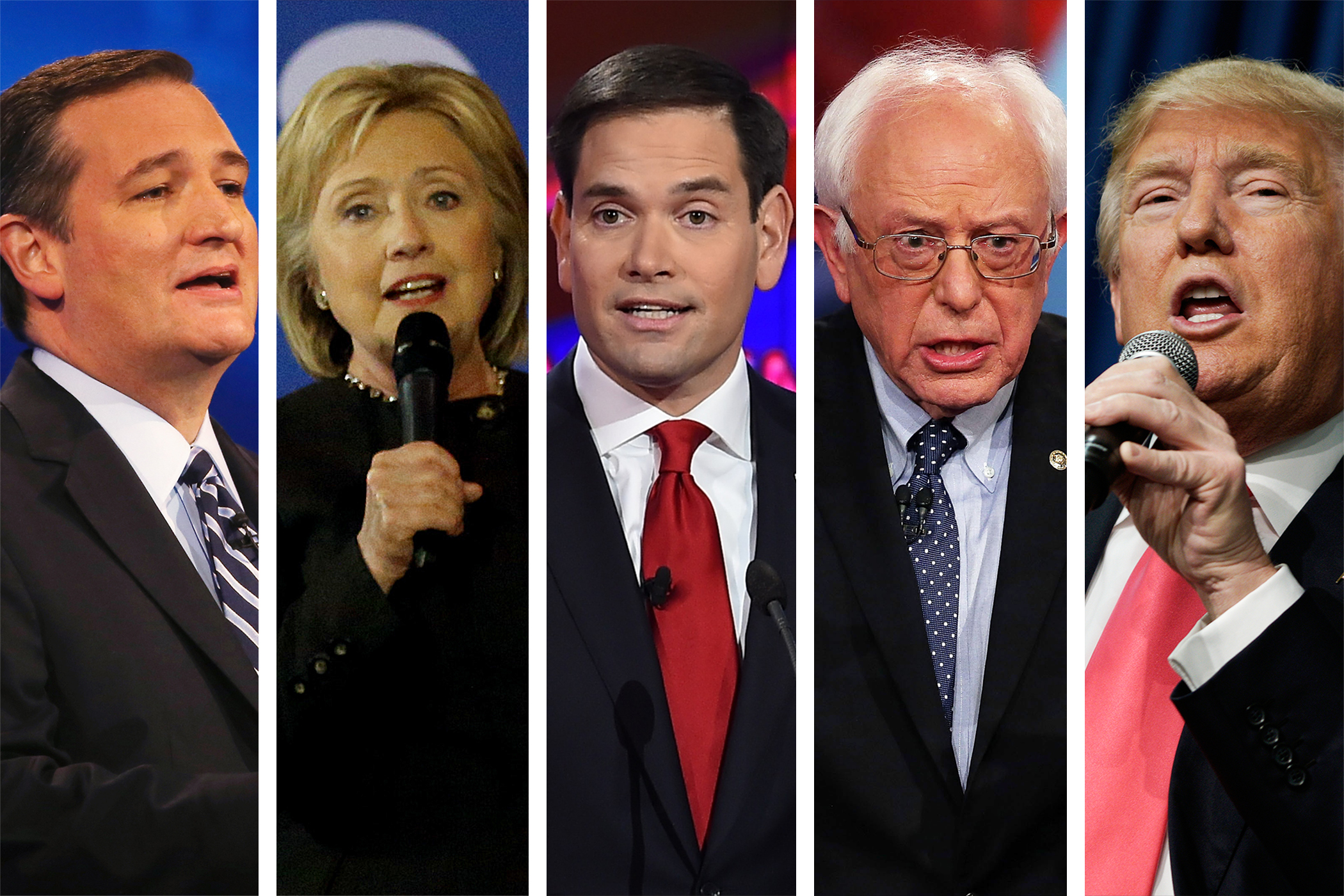
When it comes to online searches, Bing is a distant second to Google. But on Election Night, Microsoft’s search engine is the one to watch.
Bing has been making accurate predictions for a couple of years now, (Bing correctly picked Leonardo DiCaprio to win an Oscar) but only first tried predicting American elections with the 2014 midterms, in which it did better predicting than the pundits.
Now it’s ready to stake a claim on predicting the Super Tuesday results.
The company has been moving beyond being just being a search engine for some time now, says Bing’s general manager of search Ryan Gavin, by providing users an immersive experience around big moments like the Oscars, the Super Bowl, American Idol finals or the 2016 elections.
On politics, the search engine now runs the Bing Elections Experience, which offers information about each candidates platform when you search for them, the volume of public search interest in candidates, a timeline of the race and the all-important primary predictions.
Read More: What Google and Twitter Can Tell Us About 2016
At the end of the day the average user needs to feel confident that Bing can offer them the best results, says Gavin, who hopes that by building a track record of accurate predictions on top of the search engine Bing can empower users by keeping them informed.
“[Users] want to have some confidence coming in and to be participants in the larger discussion,” he told TIME. “So whether you’re talking about the Academy Awards or the election, people having that little nugget to say ‘did you know Donald Trump is going to win 10/11 primaries’ and be able to walk into the cocktail party or their office with that little nugget provides a level of confidence for them to participate in that conversation.”
This week Bing rolled out two new features: a new round of predictions for the 11 states voting on Super Tuesday and Search Wave, which much like Google Trends offers a breakdown of search interest in candidates.
One secret to Bing’s success is that its model combines poll data, prediction markets, social media posts and search data, rather than relying on one dataset, like some of its competitors. That’s because the company thinks data can be misleading—after all, not everyone searching for “Donald Trump” is a fan.
“Elections are a little more like American Idol than they are the Super Bowl,” said Bing data scientist Walter Sun.
On Super Tuesday Bing is predicting big wins for front-runners Hillary Clinton and Donald Trump in their respective contests. Bing picked Clinton to win all contests except Vermont—Sen. Bernie Sanders’ home state—and Trump to win all contests except Texas—where he may make some last minute gains on Sen. Ted Cruz, who is looking to come away with a victory at home.
So far Bing has gotten seven of eight of its primary predictions right, only getting Cruz’s victory in the notoriously tricky Iowa caucuses wrong. However accurate their predictions turn out to be after Super Tuesday, Gavin says Bing hopes that users will learn something.
“Our predictions capability isn’t just a neat parlor trick using big data, but we really feel it’s about empowering our customers,” he said.
More Must-Reads from TIME
- Inside Elon Musk’s War on Washington
- Meet the 2025 Women of the Year
- The Harsh Truth About Disability Inclusion
- Why Do More Young Adults Have Cancer?
- Colman Domingo Leads With Radical Love
- How to Get Better at Doing Things Alone
- Cecily Strong on Goober the Clown
- Column: The Rise of America’s Broligarchy
Contact us at letters@time.com